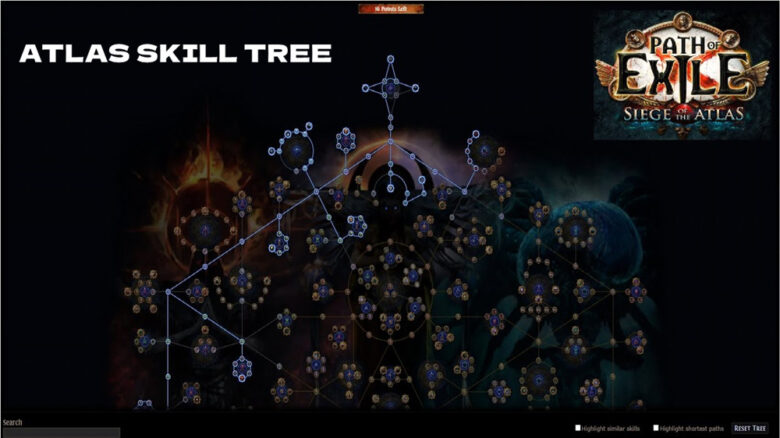Path of Exile, an action RPG developed by Grinding Gear Games, is known for its complex and intricate game mechanics. One of these mechanics, the Atlas of Worlds, introduces a skill tree that offers players various choices and strategies. In this article, we will delve into the Atlas skill tree, discussing its mechanics and how to optimize your approach in both solo self-found (SSF) and trade leagues.
Understanding the Atlas Skill Tree
The Atlas skill tree is a unique feature in Path of Exile, providing players with a plethora of options for customizing their gameplay experience. This skill tree is a reflection of the vast Atlas of Worlds, and it grants players skill points for every map bonus completed. These points can be invested to enhance your map experience and can be reallocated with POE Orbs like Orbs of Regret and Orbs of Annulment.
The Skill Tree Strategy
To make the most of the Atlas skill tree, it’s crucial to have a well-thought-out strategy. Your approach can vary depending on whether you’re playing SSF or in a trade league. Let’s explore different strategies and considerations for each.
SSF Approach:
- Embrace Self-Found Play: In SSF, you won’t rely on trade to acquire Path of Exile items. Thus, it’s essential to make your gear through crafting. Consider using Essences, which are powerful crafting materials, to enhance your equipment.
- Prioritize Unveiling: Early in the game, prioritize unveiling items through Jun, the Forsaken Master. This allows you to obtain valuable veiled modifiers and can greatly improve your gear.
- Efficient Essence Usage: Invest skill points in the Essence nodes, allowing you to obtain Essences more frequently. This can lead to a consistent source of powerful crafting materials.
- Consider Expedition: Expedition nodes can be useful in SSF as well, especially if you prioritize Essences. These nodes enhance the quality of Essences and can improve your crafting potential.
- Optimize Shaping: As you progress, consider Shaping the Atlas to control the map pool. Select maps that suit your build and playstyle to ensure more enjoyable gameplay.
Trade League Approach:
- Prioritize Trading: In a trade league, take advantage of trade interactions to acquire gear, divination cards, and other valuable items. This will allow you to enhance your character more quickly.
- Exploration and Ritual: In trade leagues, consider speccing into Exploration and Ritual nodes to benefit from more map mechanics and gain additional rewards.
- Embrace Destructive Play: If you are open to facing challenging encounters, Destructive Play nodes can be rewarding, especially when you farm Conqueror maps.
- Wandering Path: Wandering Path nodes can be an efficient choice for trade leagues. These nodes enhance the Atlas and increase the chance of encountering various map mechanics, improving your overall map experience.
- Customize for Optimal Play: Your approach should align with your preferred playstyle and the content you enjoy. The beauty of the Atlas is that there’s no one-size-fits-all strategy, and you can tailor your experience to your liking.
Conclusion
The Atlas skill tree in Path of Exile offers a unique and versatile way to enhance your gaming experience. Whether you are playing solo self-found or in a trade league, understanding the skill tree and adopting a strategy that suits your playstyle is essential.
SSF players will find success by optimizing their crafting and essence usage, while trade league players can focus on trading to improve their gear. The choice of nodes and how you approach the Atlas is ultimately up to you, and the game offers a balanced experience with no wrong choices.
In the ever-evolving world of Wraeclast, your journey through the Atlas is a personal one. Embrace the freedom it offers, and may your adventures be filled with epic loot and exciting encounters.
We hope this article is helpful. For more guidance on Path Of Exile and buying POE Currency services, check out MMOexp.

